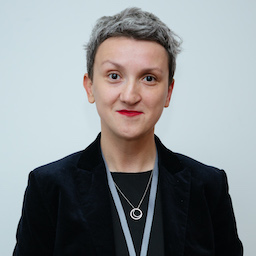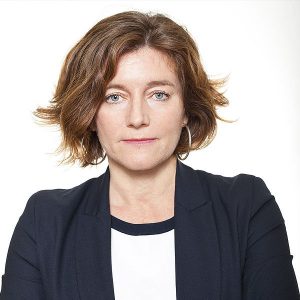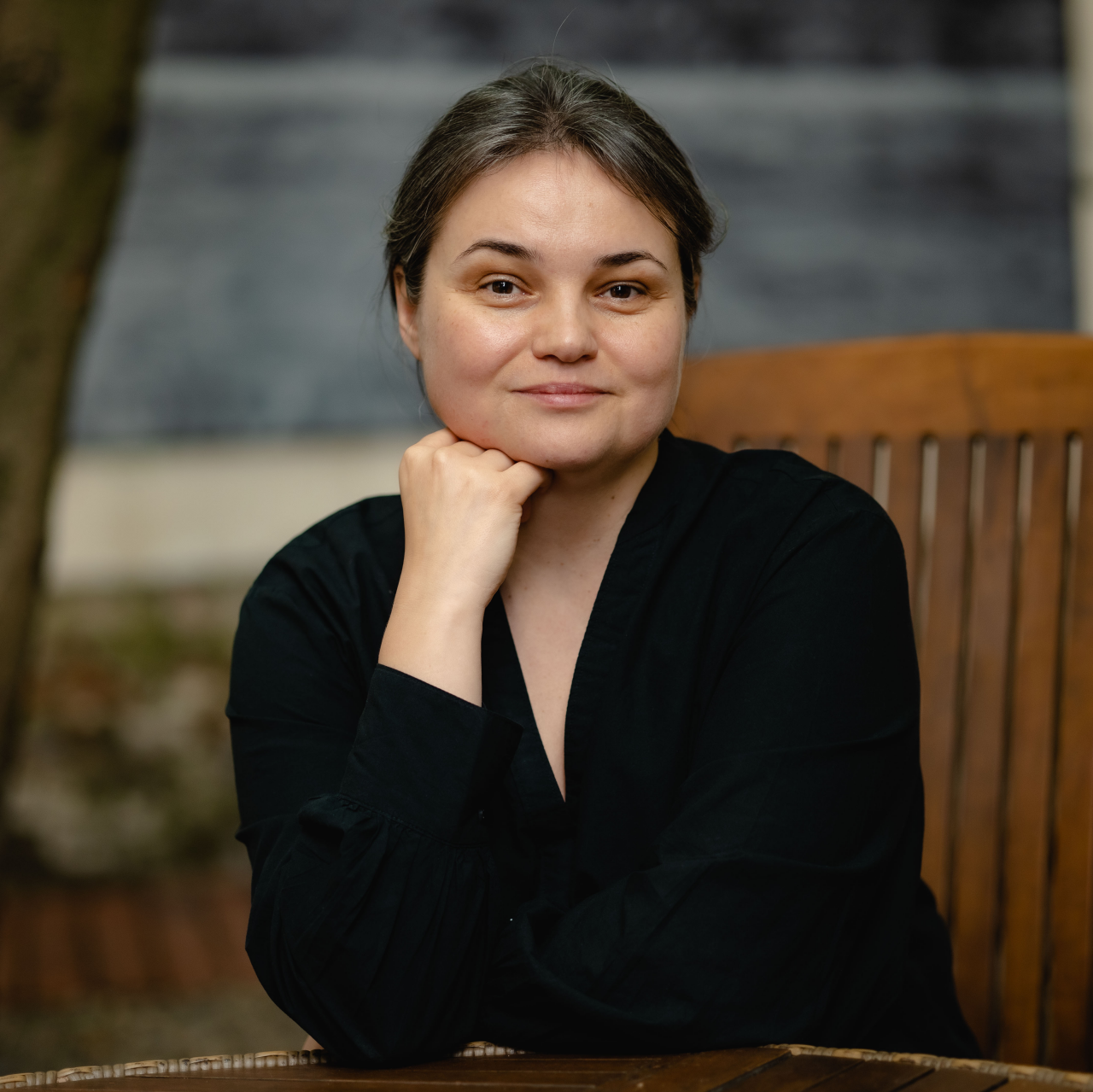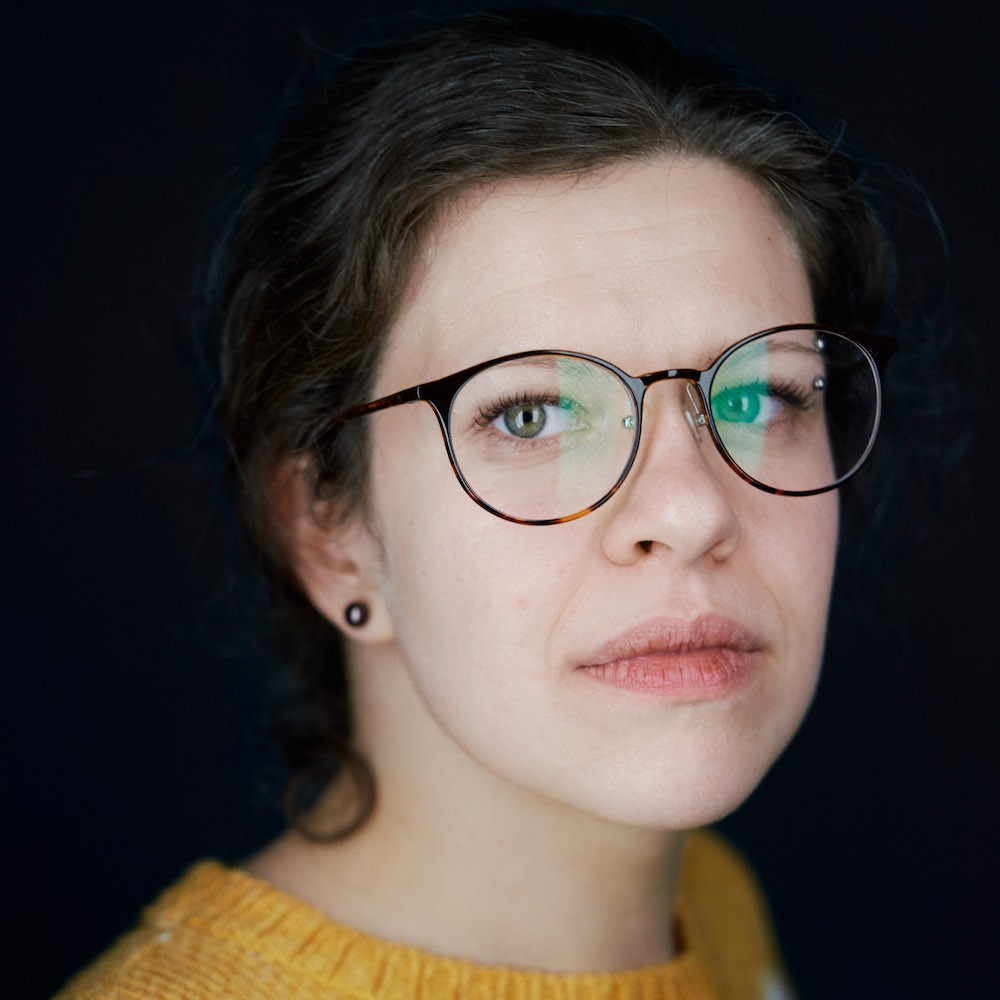About us
re/visions is a monthly journal of ideas and culture. It is based in Ukraine, Europe, and is open to the world. We explore concepts and nurture conversations.
Our motto is: Thinking together, to better imagine the future.
Why this journal?
After the start of Russia’s full-scale invasion of Ukraine, the world was no longer the same for us. In an attempt to make sense of the massive upheavals of our times, we started wondering about some of the concepts we thought we were familiar with. We felt a need to explore them more. That’s how the idea of re/visions was born.
The name we’ve chosen, re/visions, is drawn from how this war has triggered an intense revisiting of previous experiences and narratives, a rethinking of words, even creating new ones. With this journal, we want to explore how our life experience is shaped, articulated and put into words and images.
To maintain this conversation, we are inviting writers, critics, journalists, artists, curators, scholars and researchers to engage with the ideas and concepts that pervade our lives and societies. Such concepts can relate to culture, politics, education, the environment, art, economics, history, heritage, the digital world, and more.
Our approach
We want to help people find a bit more clarity by exploring the premises and outcomes of the events we are currently experiencing.
To do that, we want to slow down, step back and take the time to think together.
Each of our monthly issues will dive into a carefully chosen, overarching topic or concept.
Each issue will contain five sections:
Conversations: long-form interviews with experts, academics, civic activists or cultural actors, connected to the topic of the issue.
Context: essays by thinkers, researchers or cultural actors, offering both a broad view and personal insights.
Visual: short pieces that explore visuals as such, analyzing archival photography or film footage, and reflecting on their role in our lives.
Reviews: in-depth reviews of films, books, exhibitions, conferences, theater plays, art performances and more.
People: pieces that focus on a thinker, writer or artist whose life story may have been overlooked, falling between the cracks of established canons, or whose legacy we want to revisit.
Team

Daria Badior
Editor-in-chief
Critic, editor, and film curator based in Kyiv. For several years, she was the head of the Culture section at the Ukrainian online outlet LB.ua. Since 2021, Daria has edited a series of publications on the commemoration of 1941, the reconstruction of Ukraine during and after the current war, and has published articles in Der Tagesspiegel, The Independent, Hyperallergic, Osteuropa, Dwutygodnik, and others. She is a member of the Preparatory Committee of the European Press Prize. She co-curates the Kyiv Critics' Week film festival. Daria co-edited the 2024 book We Who Have Changed.

Natalie Nougayrède
Editor
Journalist, former editor-in-chief of Le Monde and member of The Guardian's editorial board from 2015 to 2020. She covered post-1989 transitions in Central Europe, including in Ukraine where she lived in the mid-1990s. She was Le Monde's bureau chief in Moscow (2001-2005) and its diplomatic correspondent (2006-2012). Natalie was awarded the Albert Londres journalism prize for her coverage of Chechnya war. She has held fellowships at the Robert Bosch Academy (Berlin), the INDEX Institute for Documentation and Exchange, and the Center for Urban History (Lviv). She supports media and civil society initiatives in the “Eastern Partnership” region.

Sofia Dyak
Contributing Editor
Historian and director of the Center for Urban History in Lviv. Her research interests include postwar recoveries and transformations, heritage concepts and practices, cultural infrastructures, and urban planning in twentieth-century Eastern Europe. She was a research fellow at the Institute for Human Sciences (Vienna), the NIOD Institute for War, Holocaust and Genocide Studies (Amsterdam), the Harvard Ukrainian Research Institute, and the Center for Contemporary History (Potsdam). She is a member of the boards of several institutions: Ukrainian-Jewish Encounter (Ottawa), the Centre for Historical Research of the Polish Academy of Science (Berlin), CEDOS (Kyiv), the National Museum in Lublin, and the European Architectural History Network.

Anna Protsuk
Literary Editor (Ukrainian)
Editor, translator, poet. Anna has twenty years of experience in literary editing and translations, working in book publishing and the media sector. She is an editor and consultant for a number of Ukrainian publishers. In 2019–2021, Anna was the editor-in-chief of the “Portal” publishing house. She recently started translating fiction from English into Ukrainian.
Advisory Board
Taras Fedirko (Glasgow) is a political and economic anthropologist studying media, war, and oligarchy in Ukraine. He is an assistant professor in social anthropology at the University of Glasgow and a senior research fellow at the Institute for Human Sciences (IWM) in Vienna.
Iryna Klymenko (Lviv) is a historian of early modern Europe at the Ludwig-Maximilian-University, Munich, with broad interests in the entangled history of Europe's “East” and “West”, as well as in interdisciplinary methods of historical research. She is a founding director of Max Weber Foundation’s Research Centre Ukraine, in Lviv.
Ivo Mijnssen (Zurich) writes about Ukraine and Central and Eastern Europe for the Swiss newspaper Neue Zürcher Zeitung. He studied history and sociology at Brown University, in Basel and at Stanford. In 2015, he received his PhD in Soviet History. He is the author of several books on Russian nationalism and memory politics, among them “Russia's Hero Cities” (2021, Indiana University Press). He is currently working on a book on Ukraine, together with the photographer Dominic Nahr.
Katia Rusetska (Dnipro) is a co-founder and program curator of the Dnipro Center for Contemporary Culture (DCCC), the NGO Kultura Medialna, and the Construction, which is an experimental music and contemporary art festival. She focuses on creating visual and educational programs, community interactions, and activism projects.
Marta Šimečková (Bratislava) is a journalist, translator and activist, founder and director of the Central European Forum, held annually in Slovakia. After 1989, she worked at the Archa publishing house. Later, she was edting at prominent Czech and Slovak magazines and newspapers. She has coordinated Projekt Forum within the Time to Talk network and is involved in educational initiatives for underprivileged children. She also publishes under the name Marta Frišová.
Diána Vonnák (Budapest/Vienna) is a social anthropologist and writer from Hungary. She is currently a postdoctoral researcher at the Institute of Ethnology of the Czech Academy of Sciences. Prior, she held positions at UCL, the University of St Andrews and the University of Stirling. Her first fiction book won the 2022 Margó Award in Hungary, for best debut. She translates Ukrainian poetry into Hungarian. Her English-language essays and reviews have been published by the Times Literary Supplement, the Los Angeles Review of Books, and New Lines, among others.
Katherine Younger (Vienna) is an IWM permanent fellow and research director of the Ukraine in European Dialogue program. She is a historian of modern Europe, with a particular focus on Ukraine and Eastern Europe more broadly. She received her PhD from Yale University in 2018. Currently, her research focuses on practices of international politics, forms of imperial governance and the relationship between religion and power in the long 19th century.
Helping build re/visions
The idea of re/visions appeared at the Center for Urban History in Lviv. Support from the Center and from the Institut für die Wissenschaften vom Menschen (IWM) in Vienna enabled the journal’s launch in the spring of 2025.
re/visions additionally received grants from ERIM and the Ponte Foundation. We are grateful for their trust.
We want to extend special thanks to Maryana Mazurak, Viktoria Panas, Yaryna Paniv, Yelyzaveta Bobrova and Sofia Andrusyshyn at the Center for Urban History in Lviv for their continuous support and advice.
We are also very grateful to the Latvian journalist, author and media consultant, Rita Ruduša, who actively supported our project and was a member of the Advisory Board until the summer of 2025.
The website design concept was created by Alisa Gots.